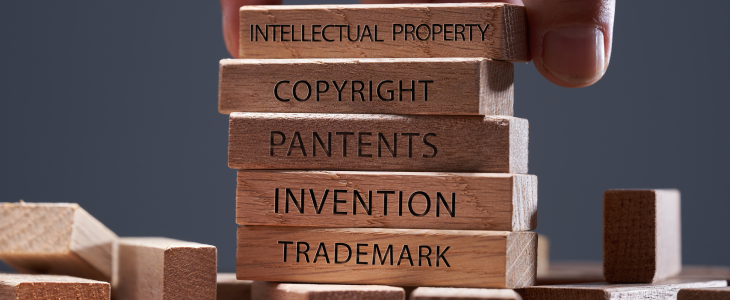In the complex landscape of the intellectual property, or “IP”, law, there are two key pillars allowing people to protect ideas as property: trademarks and copyrights. Both are vital tools to protect innovation, creativity, and brand identity, but they operate in distinct ways. Trademarks and copyrights come with their own set of rules, considerations, and protections, especially where litigation is concerned. If you are seeking to protect your innovation or are involved in a legal dispute involving trademarks, copyrights, or similar claims to intellectual property, turn to The Keleher Appellate Law Group for strategic and relentless representation.
What is a Trademark?
Before addressing the differences between trademarks and copyrights where litigation is concerned, it’s vital to understand trademarks, copyrights, and their distinctions. Trademarks are symbols, designs, names, and phrases that distinguish consumer goods or services from others on the market. A trademark is a badge of origin, providing consumers with assurances as to the quality, consistency, identity, and ideology associated with that specific brand. Whether it’s a popular logo like McDonald’s iconic golden arches, a product name that’s become synonymous with its purpose like a Bandaid, or a memorable slogan like Nike’s “Let’s do it”, it’s probably trademarked.
What is a Copyright?
Copyrights, on the other hand, protect original works of authorship in a tangible medium of expression. This can include books and similar literary works, pieces of art, music, and similar tangible creative mediums of expression. This can also include less-traditionally artistic innovations such as software code. A copyright gives the creator exclusive rights to distribute, display, perform, reproduce, or license their material as they see fit.
Key Differences in Trademark and Copyright Protections
One of the most critical distinctions between trademarks and copyrights is the protections they grant the owner. Trademark protections are designed to prevent consumer confusion, giving buyers the confidence that an item or service with that specific trademark comes from the brand they intended to support in their purchase. When an owner or company registers a trademark with the United States Patent and Trademark Office (USPTO), they gain exclusive rights to that name, logo, or slogan for their goods or services within a specific geographic area. This also gives the original owner with the registered trademark protection against trademark infringement. Trademark infringement involves another party using a similar mark, name, or slogan, usually with the intention of causing confusion among consumers. Doing so dilutes the original trademark’s distinctiveness, threatens brand identity, and misleads consumers regarding the source of the goods or services they purchased.
When it comes to copyrights, the copyright owner is granted the exclusive right to distribute, display, reproduce, perform, or create derivative content based on that original copyrighted creation. Unlike trademark infringement, which causes consumer confusion and compromises brand identity and integrity, copyright infringement occurs when someone violates one of the specific exclusive rights granted to copyright owners without proper licensing, permission, or authorization. And copyrights don’t technically need to be registered, as copyright protections automatically begin when the work is created. However, it’s best practice to register with the U.S. Copyright Office as they provide additional protections including the right to sue infringers for statutory damages and the cost of an attorney’s services.
How Trademark Litigation and Copyright Litigation are Distinct
When it comes to litigation, trademarks and copyrights require different legal theories. Trademark litigation primarily involves issues of consumer confusion, the likelihood of consumer confusion, and the distinctiveness of the logo, name, or saying in question. Infringement claims usually revolve around the unauthorized use of a mark or when competitors are using marks that are misleadingly similar, leading to a dilution of that mark or the overall brand identity, which can become false advertising. This can include disputes over domain names, product packaging, advertising and marketing campaigns, and the like. In federal trademark litigation, the Lanham Act serves as the primary legal framework and allows individuals or brands experiencing infringement to seek remedies such as injunctive relief, damages, and attorney’s fees. The court is tasked with analyzing factors such as the similarities of the marks, the strength of the original mark, the similarities of the goods or services, and whether there’s evidence of consumer confusion.
Copyright litigation centers on issues of originality, substantial similarity, and fair use. When unauthorized reproduction, distribution, or adaptation of a copyrighted work occurs, litigation is quick to follow. This is common among literary works, visual arts, music, and digital content. The Copyright Act governs federal copyright litigation, and similar to trademark litigation, offers inventors, artists, and innovators remedies for infringement including injunctive relief, damages, and attorney’s fees. Courts in copyright litigation primarily focus on the similarity between the original work and that of the alleged infringer, the nature of the work, the purpose and character of the allegedly unauthorized use, and the potential impact on the market.
Contact Our Experienced Illinois IP & Appellate Attorney Today
While trademarks and copyrights are distinct, especially where litigation is concerned, they both play critical roles in the protection of intellectual property. Understanding these differences and the unique considerations is vital to effectively navigate the complexities of IP law, safeguarding the rights of creators, innovators, and brands. Trust The Keleher Appellate Group to be your ally in navigating the complex and nuanced world of IP litigation Our team, led by attorney Christopher Keleher, stands ready to deliver responsive, reliable, and relentless representation. Call us at (312)-448-8491 or contact us today. We also proudly offer our services in Mandarin!
The Keleher Appellate Group is your premier choice for intellectual property law matters and appeals, serving clients in Chicago, Denver, St. Louis, and the surrounding areas in Illinois, Indiana, Missouri, Wisconsin, and Colorado.

